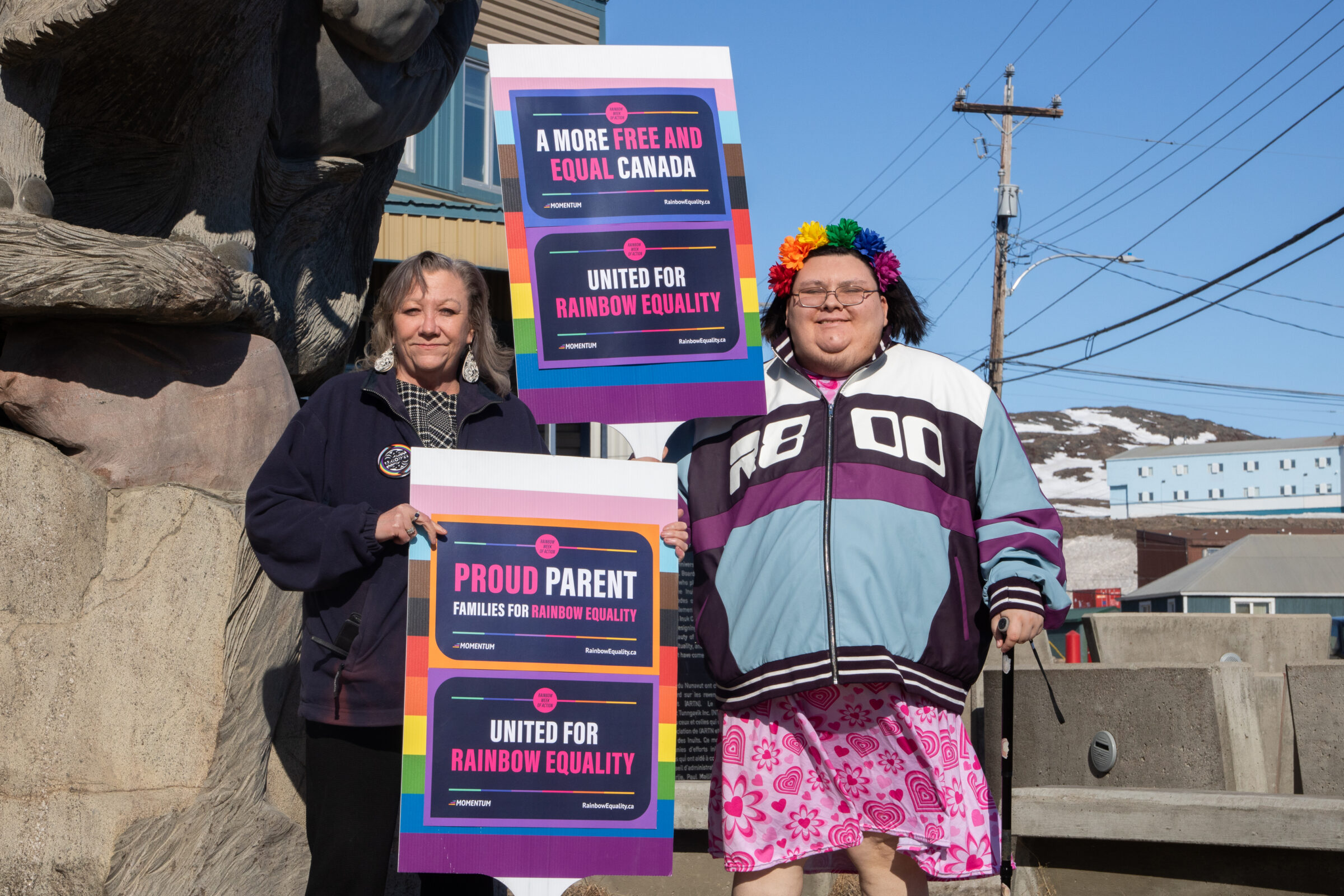Politics
Nunavut Introduces Non-Binary Option on Birth Certificates

A new law in Nunavut allows residents to select “non-binary” as a sex designation on birth certificates, marking a significant advancement in gender inclusivity. This change, part of the updated Vital Statistics Act, was passed on September 27, 2023, and is seen as a crucial step toward dignity and equality for gender-diverse individuals.
Jasmine Oldham, administrator of the Amautiit Nunavut Inuit Women’s Association, emphasized the importance of this designation, stating it “affirms the rights of gender-diverse people and reflects Inuit values of respect and community.” Oldham called for the Government of Nunavut to ensure that this recognition is not only symbolic but also meaningful through accessibility, education, and safety measures.
Despite the positive reception, the non-binary option will not be immediately available. According to Charmaine Deogracias, communications manager with the Department of Health, residents can expect access to this option within 12 to 18 months. She explained that several regulatory frameworks, some new and others needing amendments, must be finalized before implementation.
Nunavut becomes the last jurisdiction in Canada to approve a non-binary designation on birth certificates. Delaney Drachenberg, a transgender and two-spirit activist based in Iqaluit, noted that many non-binary individuals do not align with traditional male or female identities. This change is particularly significant for Indigenous individuals identifying as two-spirit, who may feel marginalized by a binary classification. Drachenberg pointed out that intersex individuals, who possess both male and female sex characteristics, also stand to benefit from this broader recognition.
While Drachenberg celebrated the new law, she acknowledged that some voices may still feel unheard. “It’s wonderful and I love it,” she said, “but there are people who might still feel dissatisfied with it, and I believe that those people deserve a voice in the conversations.”
The passage of this law aligns with broader legislative progress in Canada regarding gender identity and expression. In June 2017, Parliament enacted Bill C-16, which established legal protections for “gender identity” and “gender expression” under the Canadian Human Rights Act. This legislation expanded protections against hate propaganda and followed the inclusion of sexual orientation as a prohibited ground for discrimination in 1996. The introduction of the Civil Marriage Act in 2005 allowed same-sex couples to marry throughout Canada.
Despite these advancements, challenges remain. More than 70 countries worldwide still criminalize consensual same-sex conduct, with a dozen imposing severe penalties, including the death penalty, for engaging in such acts.
The introduction of a non-binary option on birth certificates in Nunavut is a crucial development in the ongoing fight for gender equality and inclusivity. As the region moves toward implementation, the focus will also need to be on creating an environment that supports all individuals in their identities.
-

 Politics4 weeks ago
Politics4 weeks agoSecwepemc First Nation Seeks Aboriginal Title Over Kamloops Area
-

 World5 months ago
World5 months agoScientists Unearth Ancient Antarctic Ice to Unlock Climate Secrets
-

 Entertainment5 months ago
Entertainment5 months agoTrump and McCormick to Announce $70 Billion Energy Investments
-

 Science5 months ago
Science5 months agoFour Astronauts Return to Earth After International Space Station Mission
-

 Lifestyle5 months ago
Lifestyle5 months agoTransLink Launches Food Truck Program to Boost Revenue in Vancouver
-

 Technology3 months ago
Technology3 months agoApple Notes Enhances Functionality with Markdown Support in macOS 26
-

 Lifestyle3 months ago
Lifestyle3 months agoManitoba’s Burger Champion Shines Again Amid Dining Innovations
-

 Top Stories2 months ago
Top Stories2 months agoUrgent Update: Fatal Crash on Highway 99 Claims Life of Pitt Meadows Man
-

 Politics4 months ago
Politics4 months agoUkrainian Tennis Star Elina Svitolina Faces Death Threats Online
-

 Sports5 months ago
Sports5 months agoSearch Underway for Missing Hunter Amid Hokkaido Bear Emergency
-

 Politics5 months ago
Politics5 months agoCarney Engages First Nations Leaders at Development Law Summit
-

 Technology5 months ago
Technology5 months agoFrosthaven Launches Early Access on July 31, 2025





















